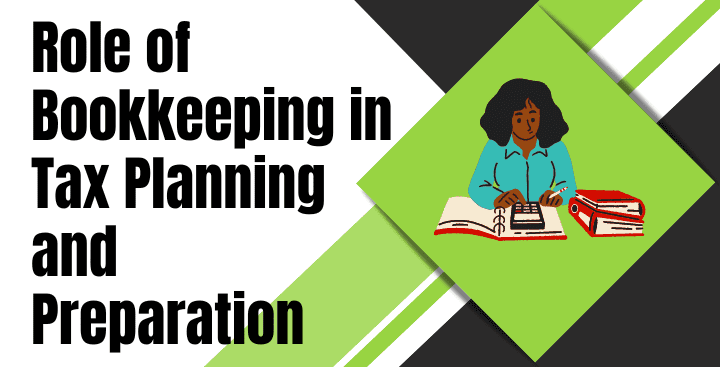Know How Bookkeeping Helps with Tax Planning and Preparation
Bookkeeping also plays a important role in tax planning and preparation. It includes keeping systematic recording, organizing, and tracking of financial transactions and activities of a business. By keeping accurate and up-to-date books, businesses can effectively manage their finances, make informed decisions, and comply with Canadian tax regulations. Here’s how bookkeeping contributes to tax planning and preparation:
Accurate Financial Records
Proper bookkeeping ensures that all income, expenses, assets, and liabilities are recorded correctly and in a timely manner. This accurate financial data serves as the foundation for tax planning and preparation, as it provides a clear picture of the business’s financial position.
Deduction Tracking
Bookkeeping allows businesses to track and document deductible expenses throughout the year. By categorizing and recording expenses in a systematic manner, businesses can identify eligible deductions and maximize their tax savings. This includes expenses such as office supplies, travel, utilities, and employee benefits.
Financial Analysis
Regularly reviewing financial statements generated through bookkeeping helps identify trends, patterns, and potential tax-saving opportunities. Analyzing profit and loss statements, balance sheets, and cash flow statements enables businesses to make informed decisions about deductions, investments, and timing of purchases to optimize their tax liability.
Compliance with Tax Regulations
Accurate bookkeeping ensures that businesses maintain proper documentation to support their tax filings. By organizing financial records, invoices, receipts, and other relevant documents, businesses can demonstrate compliance with tax laws and regulations. This minimizes the risk of errors, penalties, and audits by tax authorities.
Tax Planning Strategies
Bookkeeping provides essential data for tax planning. By examining historical financial records, businesses can identify tax-efficient strategies such as deferring income or accelerating expenses to optimize their tax liability. These strategies can help manage cash flow, minimize taxes, and potentially increase refunds.
Preparation of Financial Statements
Bookkeeping produces financial statements such as income statements and balance sheets, which are required for tax preparation. These statements summarize the business’s financial performance and position, providing a comprehensive overview for tax professionals to accurately calculate taxable income and complete tax returns.
Collaboration with Tax Professionals
Proper bookkeeping ensures that tax professionals have access to organized and accurate financial data. This collaboration helps with right tax making plans, permits for well timed submitting of tax returns, and permits tax specialists to perceive potential deductions, credits, and other tax benefits that the commercial enterprise may qualify for.
In short, bookkeeping performs a crucial role in tax making plans and training by means of imparting accurate financial data, tracking deductions, enabling monetary evaluation, making sure compliance with tax guidelines, assisting tax planning strategies, facilitating the training of economic statements, and promoting collaboration with tax specialists.
Maintaining meticulous bookkeeping practices is essential for businesses to effectively manage their taxes and optimize their financial position.
Are you ready to optimize your tax planning and preparation? Ensure accurate financial records, maximize deductions, and comply with tax regulations by implementing effective bookkeeping practices. Contact us, or Call +1 647-241-5126 to streamline your finances and collaborate with our experienced team of tax professionals. Take control of your taxes and secure your financial success.
Also read:

